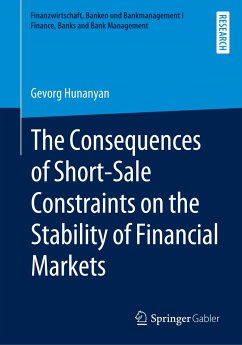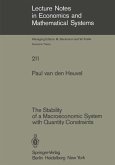Gevorg Hunanyan develops a model that provides a comprehensive theoretical framework to study the consequences of short-sale constraints on the stability of financial markets. This model shows that overpricing of securities is solely attributable to the subjective second moment beliefs of investors. Thus, short-sale constraints prevent a market decline only if investors have low dispersion of beliefs, which in the model is embodied in the covariance matrix. Moreover, the author analyses the consequences of short-sale constraints on the investor's portfolio selection, risk-taking behaviour as well as default probability. The author develops criteria that allow to analyse the effectiveness of short-sale constraints in reducing portfolio risk as well as default risk.
Bitte wählen Sie Ihr Anliegen aus.
Rechnungen
Retourenschein anfordern
Bestellstatus
Storno








